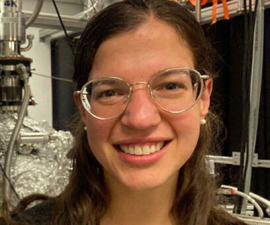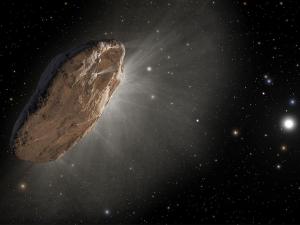

Research Expertise and Interest
protoplanetary disks, astrochemistry
Research Description
Jennifer Bergner is the Chevron Chair in Chemistry and an assistant professor in the Department of Chemistry.
Research: The regions around forming stars are host to a surprisingly rich chemistry, leading to the production of molecules both familiar and exotic. The synthesis of relatively large organic molecules in star-forming regions is especially exciting because planets are born alongside stars, raising the possibility that astrochemically produced organics could seed nascent planets with ingredients for origins of life chemistry. More broadly, chemistry along the star- and planet-formation sequence has wide-ranging impacts on the compositions and properties of newly formed planetary systems.
The Bergner astrochemistry group uses a variety of tools to explore the chemistry at play in protostars and protoplanetary disks, the progenitors of planetary systems. With cryogenic vacuum experiments they mimic the extremely low temperatures and pressures of star-forming regions in the lab, enabling them to explore the chemical and microphysical behavior of volatile ices in these exotic conditions. They also use state-of-the-art telescope facilities like ALMA and JWST to observe the spectral fingerprints of volatile molecules in protostars and protoplanetary disks, providing insight into the chemical landscape of planet formation and the underlying physical processes which drive astrochemical evolution. Lastly, we use simulations to understand how the volatile chemistry is influenced by the dynamic redistribution of material within planet-forming disks.
